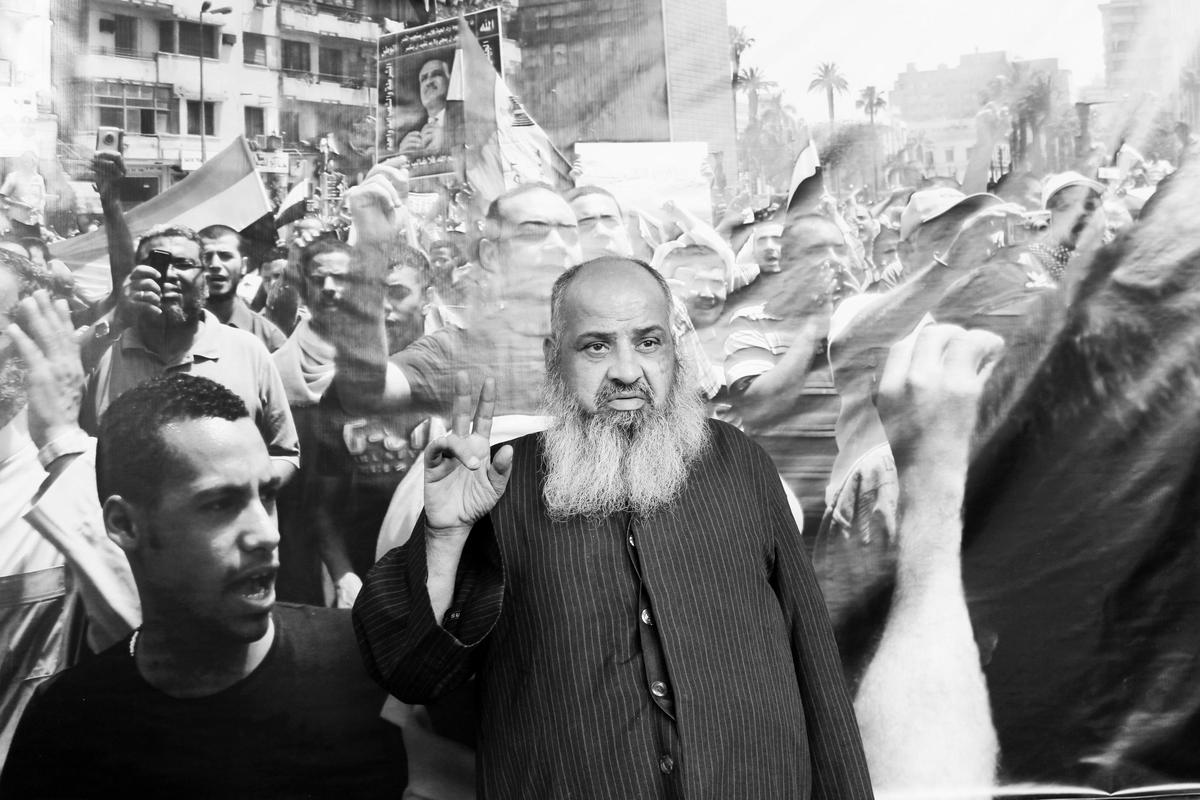Mohamed Abdullatif, strategic planner at Tarek Nour Communications, reflects on the birth of the Ana Masry (“I am Egyptian”) campaign. Abdullatif met with Bidoun in his stark, all-white office in Agouza. His agency is known for everything from selling Hoover products to working with the Ministry of Health on an avian flu awareness campaign.
Mohamed Abdullatif: The idea was to treat Egypt as a stand-alone brand that would sell and spread a message of optimism and a brighter future. It would communicate how Egyptian values had changed. For the first time in a very long time, Egyptians could be proud. There are lots of stories of Egyptians flashing their passports in airports and immediately getting a clap on the back: “You guys really showed us how to have a peaceful revolution!”
That’s how the Ana Masry (“I am Egyptian”) campaign started. After the eighteen days in Tahrir Square, we all came back amped and wanting to do something. We wanted to move the cycle because everyone was worried about the accounts. In advertising you’re second in line in the economy, so if the companies suffer, you do, too. We wanted to generate something that would pump up the action and provide a meaningful message, too. The trick was how to package it without being disingenuous and making the clients feel they were advertising just to distract from the negative media surrounding a lot of Egyptian companies. After the revolution, every company needed to find a way to address the revolution.
With Ana Masry, we wanted to play on how the set of negative values Egyptians had lived with, like corruption and harassment, that were embedded in the culture, disappeared during the eighteen days. In those days we had no crime, no sexual harassment. People were focused on one thing, which was dropping the government. People became very daring against the state, and the revolution brought out their creativity. Two very important values emerged: pride and unity… all the tales of nothing happening to the churches, no attempts at vandalism or terrorism or destruction, were powerful.
A Harvard Business School professor once said, “Brands that increase advertising during a crisis when competitors are cutting back can improve market share and return on investment at lower cost during economic good times.”

It’s also important to know that consumers in a downturn buy from brands that they associate with quality and longevity. This is what we tried to communicate to our clients: marketing is part of the solution, not the problem, and this is a golden opportunity! By talking when everyone else is silent, you can get an edge over your competitors.
Brands need to understand this sensitive situation and understand that the strategy needs to change accordingly. What we do now will be remembered for the coming years. Talk and conversation is our new Key Performance Indicator. Our task as an agency is to become the architects of a conversation.
The description “Ana Masry” has become a brand… it’s not just a description anymore. We used the colors of the flag, and the word “Masr” is on a postage stamp. This is basically the idea, that the words are coming out of a stamp. We also used old Arabic typography. I think they call it khat osmany.
We had other campaigns with our clients. We handled the Persil account, and it was hugely successful. The slogan was “This country is our country.” The hook was that Persil is cleaning detergent, so let’s clean the streets because we’ve always had a problem with rubbish in the streets in Egypt. It also played on the attractive image of Egyptian civic duty during the eighteen days when all these young people were cleaning up the streets.
We also worked on the account of the Emirati construction company Emaar. They had one of the first ads out there to say they would stand by the economy. It communicated something along the lines of “We are here and staying to back the Egyptian economy!” It was on billboards and in newspapers.
There were other ads. Coke had a campaign launched one month ago saying, “Make tomorrow better.” It had an image of kids scraping away a gray surface to reveal a beautiful Cairo behind it. Pepsi also did something along the lines of that: “Tomorrow only started with a thought.”
Rawabi created a smaller-sized pack of margarine for one pound. It communicated that they understood the hard economic times. That was quite meaningful. Then there were telemarketing companies like Tamima, with its revolutionary bedcover, that really went viral. People are dying, and you’re asking us to buy a bedcover with the Egyptian flag on it? It was quite pathetic. Vodafone also had this message that they would eliminate illiteracy in Egypt in five years. This was their promise to the Egyptian people. Mobinil played on being proud to be an Egyptian. If anything works in Egypt it’s humor… laughter, taking the piss. We dropped our government with our humor. Think about the signs in the square:
He should leave, we will not.
Please leave because my hand hurts.
Please leave, I want to take a shower.
and so on.
Humor was the fuel to stay.
Still, in advertising, we think that humor will take a step back for a bit. More emotion will be used… playing with music and voice-overs, especially tingly voice-overs and the more “us” messages that we’re in this together. Those are the messages that will be communicated within the coming six months to a year.